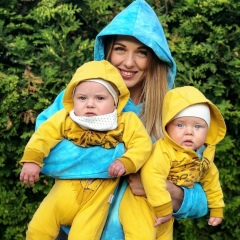Нечто из области: накопилось настолько, что трудно уже молчать.
Хотя, конечно, я не люблю говорить о кино. Образование, вроде, позволяет,но и тут - лучше делать, чем трепаться.
Тем более, когда речь заходит о военных фильмах. Несмотря на детские игры в войнушку, увлечение историей и техникой, я всё чаще вспоминаю героя Льва Кассиля: "Знаешь, а война, оказывается - это ни капельки не красиво". И фильмы о ней - дело сложное и тонкое. Поэтому к единственному фильму Нолана, основанному на реальных событиях, я поначалу отнёсся с определённым предубеждением. И плевать, что это "тот самый Нолан", чтоб зарычать и кончить лично мне имён в титрах недостаточно.
Операция "Динамо" по эвакуации союзных войск из немецкого окружения, всё же, момент довольно спорный: грандиозный проёб, ценой сверхусилий обернувшийся настоящим подвигом. Перегнуть здесь палку можно было бы тысячу раз.
Тем более плохих примеров - хоть уделайся. Китайский народный умелец Чжан Имоу, допустим, из Нанкинской резни сделал патетическую агитку с рычащими монструозными японцами, будоражащими сердце кровавыми фонтанами и прочими аттракционами. Называется - "Цветы войны". Монументальный правдоруб и бесогон из наших краёв, пообещав "великое кино о великой войне" - облажался так, что лучше промолчать.
Нолан? Нолан оказался мудрее. Во сто крат.
Война у него - не повод, а обстоятельство, вроде погоды, с которой приходится как-то уживаться. Что вы делаете, когда с неба падает дождь?
Вот и здесь зажатым на пятачке французского побережья героям приходится что-то делать. Потому что - вместо, или в дополнение к дождю - стреляют откуда-то немцы, высылают звенья своих самолётов, топят корабли.
Враг здесь - тоже обстоятельство. Он практически безлик, даром что исторически достоверен, и у "юнкерсов" с "мессерами" можно легко определить модель.
И тем ценнее и страшнее поступки героев в соприкосновении с этим обстоятельством.
Помните, что такое классическая греческая трагедия? Неизбежное столкновение героя с заведомо превосходящей его силой.
У Бесогона вот немецкий пилот показательно топил баржу с несчастными калеками, настоятельно вызывая - в первую очередь у самого кровожадного автора, я думаю - желание отомстить вражине. Ему осязаемо нужен этот вражина. Нолану - только отчасти.
У него тонущий корабль, забитый раненными, от причала отталкивают свои же. Без показухи и патетики - просто если они этого не сделают, погибнет в разы больше народу. И так мелочь за мелочью, деталь за деталью, автор ведёт историю. Мастерски играя со временем - оно ведь действительно по разному ощущается в разных ситуациях. Мгновенно меняя масштаб: воздушный бой над морем легко сворачивается до вызывающей приступы клаустрофобии и паники сцены в корабельном трюме.
Драма при всех этих технических, чисто нолановских фичах остаётся драмой. Той самой трагедией, со всем присущим ей пафосом - но не в современном смысле этого слова, а в классическом, аристотелевском.
И - вот ещё один важный момент - герои сами до конца не осознают ни драмы, ни пафоса. И виду не показывают. О том, что Родина считает их отступление подвигом они узнают только потом, оказавшись на суше.
Финальным аккордом, расставляющим точки над "i" звучит речь Черчилля, прочитанная в газете - но и тут Нолану удаётся обойтись без перегибов. До "Мы будем драться на пляжах" Черчилля нужно было ещё дожить - тем более, что ещё до Дюнкерка, в другой знаменитой речи, сэр Уинстон пообещал нации "кровь,пот и слёзы". Так и вышло. А ведь ни Битва за Британию, ни наша война с фрицами ещё не началась.
Короче, ребятушки. Сходите, посмотрите, всё-таки.
Хотя, конечно, я не люблю говорить о кино. Образование, вроде, позволяет,но и тут - лучше делать, чем трепаться.
Тем более, когда речь заходит о военных фильмах. Несмотря на детские игры в войнушку, увлечение историей и техникой, я всё чаще вспоминаю героя Льва Кассиля: "Знаешь, а война, оказывается - это ни капельки не красиво". И фильмы о ней - дело сложное и тонкое. Поэтому к единственному фильму Нолана, основанному на реальных событиях, я поначалу отнёсся с определённым предубеждением. И плевать, что это "тот самый Нолан", чтоб зарычать и кончить лично мне имён в титрах недостаточно.
Операция "Динамо" по эвакуации союзных войск из немецкого окружения, всё же, момент довольно спорный: грандиозный проёб, ценой сверхусилий обернувшийся настоящим подвигом. Перегнуть здесь палку можно было бы тысячу раз.
Тем более плохих примеров - хоть уделайся. Китайский народный умелец Чжан Имоу, допустим, из Нанкинской резни сделал патетическую агитку с рычащими монструозными японцами, будоражащими сердце кровавыми фонтанами и прочими аттракционами. Называется - "Цветы войны". Монументальный правдоруб и бесогон из наших краёв, пообещав "великое кино о великой войне" - облажался так, что лучше промолчать.
Нолан? Нолан оказался мудрее. Во сто крат.
Война у него - не повод, а обстоятельство, вроде погоды, с которой приходится как-то уживаться. Что вы делаете, когда с неба падает дождь?
Вот и здесь зажатым на пятачке французского побережья героям приходится что-то делать. Потому что - вместо, или в дополнение к дождю - стреляют откуда-то немцы, высылают звенья своих самолётов, топят корабли.
Враг здесь - тоже обстоятельство. Он практически безлик, даром что исторически достоверен, и у "юнкерсов" с "мессерами" можно легко определить модель.
И тем ценнее и страшнее поступки героев в соприкосновении с этим обстоятельством.
Помните, что такое классическая греческая трагедия? Неизбежное столкновение героя с заведомо превосходящей его силой.
У Бесогона вот немецкий пилот показательно топил баржу с несчастными калеками, настоятельно вызывая - в первую очередь у самого кровожадного автора, я думаю - желание отомстить вражине. Ему осязаемо нужен этот вражина. Нолану - только отчасти.
У него тонущий корабль, забитый раненными, от причала отталкивают свои же. Без показухи и патетики - просто если они этого не сделают, погибнет в разы больше народу. И так мелочь за мелочью, деталь за деталью, автор ведёт историю. Мастерски играя со временем - оно ведь действительно по разному ощущается в разных ситуациях. Мгновенно меняя масштаб: воздушный бой над морем легко сворачивается до вызывающей приступы клаустрофобии и паники сцены в корабельном трюме.
Драма при всех этих технических, чисто нолановских фичах остаётся драмой. Той самой трагедией, со всем присущим ей пафосом - но не в современном смысле этого слова, а в классическом, аристотелевском.
И - вот ещё один важный момент - герои сами до конца не осознают ни драмы, ни пафоса. И виду не показывают. О том, что Родина считает их отступление подвигом они узнают только потом, оказавшись на суше.
Финальным аккордом, расставляющим точки над "i" звучит речь Черчилля, прочитанная в газете - но и тут Нолану удаётся обойтись без перегибов. До "Мы будем драться на пляжах" Черчилля нужно было ещё дожить - тем более, что ещё до Дюнкерка, в другой знаменитой речи, сэр Уинстон пообещал нации "кровь,пот и слёзы". Так и вышло. А ведь ни Битва за Британию, ни наша война с фрицами ещё не началась.
Короче, ребятушки. Сходите, посмотрите, всё-таки.
Something from the region: it has accumulated so much that it is already difficult to keep silent.
Although, of course, I do not like to talk about cinema. Education, it seems, allows, but even here it is better to do than to talk.
Especially when it comes to war films. Despite the children's war games, fascination with history and technology, I more and more often remember the hero Lev Kassil: "You know, but the war, it turns out, is not the least bit beautiful." And films about her are a complex and delicate matter. Therefore, at first, I reacted with a certain prejudice to the only Nolan film based on true events. And do not care that this is "the same Nolan", to growl and finish the names in the credits are not enough for me personally.
Operation “Dynamo” to evacuate the allied forces from the German encirclement, nevertheless, is a rather controversial moment: a grandiose blow-up, at the cost of extra efforts turned into a real feat. One could bend the stick here a thousand times.
All the more bad examples - at least take it. Chinese folk craftsman Zhang Yimou, for example, made a pathetic propaganda from the Nanjing massacre with growling monstrous Japanese, bloody fountains stirring up the heart and other attractions. It is called "Flowers of War". The monumental truth-teller and besogon from our land, promising "a great movie about the great war" - screwed up so that it is better to remain silent.
Nolan? Nolan was wiser. A hundredfold.
The war for him is not a reason, but a circumstance, like the weather, with which you have to somehow get along. What do you do when rain falls from the sky?
Here, too, trapped in a patch of the French coast, the heroes have to do something. Because - instead of, or in addition to the rain - the Germans are shooting from somewhere, sending out their aircraft units, sinking ships.
The enemy here is also a circumstance. It is practically faceless, even though it is historically reliable, and it is easy to determine the model of the "Junkers" with "Messers".
And the more valuable and terrible are the actions of the heroes in contact with this circumstance.
Remember what classic Greek tragedy is? The inevitable collision of the hero with the obviously superior force.
At Besogon, a German pilot was demonstratively sinking a barge with unfortunate cripples, insistently provoking - first of all, from the most bloodthirsty author, I think - a desire to take revenge on the enemy. He tangibly needs this foe. Nolan only partially.
He has a sinking ship, crammed with the wounded, from the pier are pushed away by their own. Without show and pathos - just if they don't, many more people will die. And so little thing by little thing, detail by detail, the author leads the story. Masterfully playing with time - it really feels differently in different situations. Instantly changing scale: aerial combat over the sea easily collapses into a claustrophobic and panic-inducing scene in the ship's hold.
With all these technical, purely Nolanic features, drama remains drama. The same tragedy, with all its inherent pathos - but not in the modern sense of the word, but in the classical, Aristotelian.
And - here's another important point - the heroes themselves are not fully aware of either the drama or the pathos. And they don't show it. The fact that the Motherland considers their retreat to be a feat, they learn only later, being on land.
The final chord, dotting the "i" s, sounds Churchill's speech, read in the newspaper - but even here Nolan manages to do without excesses. Churchill had to live up to "We will fight on the beaches" - especially since even before Dunkirk, in another famous speech, Sir Winston had promised the nation "blood, sweat and tears." And so it happened. But neither the Battle of Britain, nor our war with the Fritzes has yet begun.
In short, guys. Go and see, after all.
Although, of course, I do not like to talk about cinema. Education, it seems, allows, but even here it is better to do than to talk.
Especially when it comes to war films. Despite the children's war games, fascination with history and technology, I more and more often remember the hero Lev Kassil: "You know, but the war, it turns out, is not the least bit beautiful." And films about her are a complex and delicate matter. Therefore, at first, I reacted with a certain prejudice to the only Nolan film based on true events. And do not care that this is "the same Nolan", to growl and finish the names in the credits are not enough for me personally.
Operation “Dynamo” to evacuate the allied forces from the German encirclement, nevertheless, is a rather controversial moment: a grandiose blow-up, at the cost of extra efforts turned into a real feat. One could bend the stick here a thousand times.
All the more bad examples - at least take it. Chinese folk craftsman Zhang Yimou, for example, made a pathetic propaganda from the Nanjing massacre with growling monstrous Japanese, bloody fountains stirring up the heart and other attractions. It is called "Flowers of War". The monumental truth-teller and besogon from our land, promising "a great movie about the great war" - screwed up so that it is better to remain silent.
Nolan? Nolan was wiser. A hundredfold.
The war for him is not a reason, but a circumstance, like the weather, with which you have to somehow get along. What do you do when rain falls from the sky?
Here, too, trapped in a patch of the French coast, the heroes have to do something. Because - instead of, or in addition to the rain - the Germans are shooting from somewhere, sending out their aircraft units, sinking ships.
The enemy here is also a circumstance. It is practically faceless, even though it is historically reliable, and it is easy to determine the model of the "Junkers" with "Messers".
And the more valuable and terrible are the actions of the heroes in contact with this circumstance.
Remember what classic Greek tragedy is? The inevitable collision of the hero with the obviously superior force.
At Besogon, a German pilot was demonstratively sinking a barge with unfortunate cripples, insistently provoking - first of all, from the most bloodthirsty author, I think - a desire to take revenge on the enemy. He tangibly needs this foe. Nolan only partially.
He has a sinking ship, crammed with the wounded, from the pier are pushed away by their own. Without show and pathos - just if they don't, many more people will die. And so little thing by little thing, detail by detail, the author leads the story. Masterfully playing with time - it really feels differently in different situations. Instantly changing scale: aerial combat over the sea easily collapses into a claustrophobic and panic-inducing scene in the ship's hold.
With all these technical, purely Nolanic features, drama remains drama. The same tragedy, with all its inherent pathos - but not in the modern sense of the word, but in the classical, Aristotelian.
And - here's another important point - the heroes themselves are not fully aware of either the drama or the pathos. And they don't show it. The fact that the Motherland considers their retreat to be a feat, they learn only later, being on land.
The final chord, dotting the "i" s, sounds Churchill's speech, read in the newspaper - but even here Nolan manages to do without excesses. Churchill had to live up to "We will fight on the beaches" - especially since even before Dunkirk, in another famous speech, Sir Winston had promised the nation "blood, sweat and tears." And so it happened. But neither the Battle of Britain, nor our war with the Fritzes has yet begun.
In short, guys. Go and see, after all.
У записи 12 лайков,
0 репостов,
248 просмотров.
0 репостов,
248 просмотров.
Эту запись оставил(а) на своей стене Андрей Репин

































